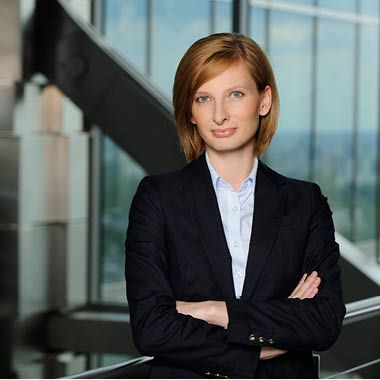Magdalena Kultys is a Polish lawyer now working as a Senior Consultant and Legal Recruiter at Capital Search International in Warsaw. We asked her to provide some perspective for our readers on the legal recruiting business in Poland and current opportunities in the Polish legal market.

Magdalena Kultys, Senior Consultant and Legal Recruiter, Capital Search International
CEELM: What’s your background –how did you become a legal recruiter?
M.K.: My route into headhunting has been a far from a typical one, at least here in Poland. Prior to joining Capital Search International, I worked as a transactional lawyer, first at K&L Gates, then at Baker McKenzie.
Quitting a rather clear-cut career path was a tough decision to make. I saw so many similar suits like me and realized that I wanted something different. The opportunity came when I received a job offer from my current company when it decided to expand into the legal recruitment business. I thought to myself, “it’s now or never,” quit the law firm, and stepped over the fence to the headhunting side.
But of course my previous experience as a practicing lawyer helps me every day in understanding my clients’ needs and in helping them find the best lawyers Poland has to offer.
CEELM: Are you and your colleagues seeing much movement in Poland at the moment, or is it still quiet?
M.K.: We’re not quite back to what we observed before the economic crisis of 2008. But the first half of 2014 was very promising – especially in TMT (Technology Media Telecommunications), transactional, and tax practices. This is in line with Poland’s economic growth forecasts. Poland’s consumer confidence index is at its highest point since 2010; GDP growth is accelerating. Based on what clients are telling me, the second half of 2014 will see significant movement on the Polish legal market.
CEELM: Where do you see most of your work coming from, as a legal recruiter? Local firms, international firms, or in-house roles for corporates?
M.K.: Currently, there are two major recruitment trends. The first is recruiting for senior positions – partners, counsels and senior associates – in the international law firms. The second trend is that big companies are looking to fill positions in their legal departments, both general counsel and in-house lawyers. Small and medium-sized local legal offices tend to look for candidates on their own.
CEELM: What practice areas are in most demand at the moment in Poland?
M.K.: Since the beginning of the year clients have been expressing great interest in finding lawyers who specialize in IT, data protection and e-commerce. Law firms are trying to meet the expectations of their TMT clients. There’s a lot of demand for lawyers with an extensive knowledge of the law and terminology specifically related to IT. So, to any IT lawyers reading this – I have your dream job waiting here in Poland!
Alongside this trend in IT law, there is high demand for transactional lawyers with a strong second specialization, such as employment law, general corporate law or competition law.
In the eyes of my clients, lawyers focused on two practices give great added value to the firm, as they can be flexible in demanding times. On the other hand, as the saying goes, jack of all trades, master of none: claiming to know more than three practices is seen as no specialization at all.
CEELM: Are law firms and companies in Poland comfortable using legal recruiters, or are you still expected to explain/prove your usefulness sometimes? Does that differ among international law firms and domestic firms?
M.K.: There’s a saying: “If you think it’s expensive to hire a professional, wait until you hire an amateur.” Small and medium-sized domestic law firms usually learn this lesson the hard way. In most cases they decide to conduct recruitment processes on their own. As a result, they suffer from high staff rotation which scares legal talent away. In many cases we have to explain to them that using legal recruitment services will improve their work and add value. In the last year the number of small and medium-sized law firms (including boutique law firms) who sought the assistance of legal head hunters increased slightly but it is still not a very big market.
On the other hand, international law firms, large domestic legal offices, and large companies use legal recruiters regularly. It allows them to save two very important things: time, and in the long-term, money.
CEELM: Is there any role for expatriate lawyers wanting to come work in Poland, or are those opportunities limited?
M.K.: Let me use an example: Banking & Finance attorneys who advise on preparing LMA standard documentation will easily join projects in every European country, including Poland. On the other hand, lawyers with a litigation background from London might have serious difficulties in adapting to our proceedings (excluding international arbitration). The conclusion is simple: the opportunities for expatriate lawyers depend on their qualifications and their practice area. Our legal market is still growing so there will be more interesting positions for expats lawyers in big law firms. However, we must admit that it is more difficult to transfer expats in-house than lawyers in law firms, as legal departments generally favor lawyers already based in their jurisdictions.
 If you would like to receive regular updates on CEE cases, deals, lateral moves and promotions, and legal awards or if you want to sign up to receive a hard copy of our upcoming magazine please subscribe here. {/simplepopup}
If you would like to receive regular updates on CEE cases, deals, lateral moves and promotions, and legal awards or if you want to sign up to receive a hard copy of our upcoming magazine please subscribe here. {/simplepopup}